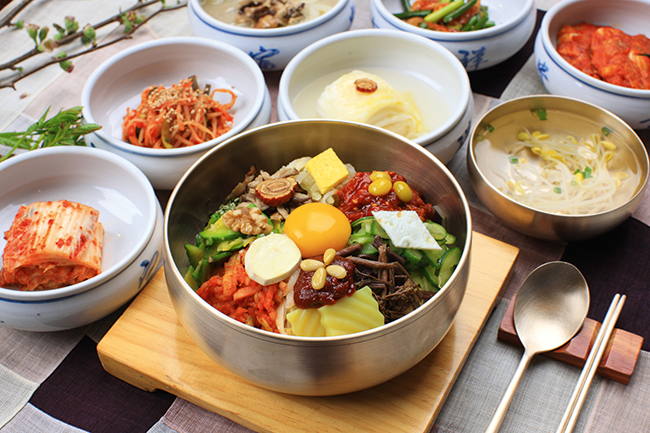South Korea Trains
On the fast track to taste: Bibimbap in Jeonju

Alyssa Govindan provides a delicious overview of South Korean foodie hub, Jeonju.
In 2004, South Korea joined France, Germany, Japan and Spain in the super high-speed train era. Since then, Koreans have been able to travel virtually anywhere in their country in under three hours. Their express rail network operates at speeds of up to 300 kilometres per hour and can traverse the 194 kilometres between the heart of Seoul and centrally located Jeonju with a comfortable, scenic rail journey of just 90 minutes.
As the birthplace of the eminent Korean dish Bibimbap and home to hundreds of vibrant hanok (traditional Korean houses), the town of Jeonju is all about tradition and culture. A consistently rising food scene and a dedication to preserving some of Korea’s best national dishes resulted in Jeonju being named a City of Gastronomy by UNESCO in 2012. Today the city is a hotspot for Korean travellers, but is sure to pick up popularity among foreigners in the years to come for its extraordinary food scene and rich historical and cultural offerings.
With slanted tiled roofs and wooden doors, the village of Hanok Maeul has one of the largest collections of hanok in all of South Korea. It lies in the heart of Jeonju and is the place to stay. Traditional style is to sleep on a mat on the floor and the method of ondol (underfloor heating system) aids a comfortable sleep. Most hanok have been transformed into guesthouses, galleries or teahouses.
At the heart of the village is Gyeonggijeon, a historical site that was built in 1410 for Yi Seong-gye, the first king of the long-reigning Joseon Dynasty. His portrait and memorial tablet are protected here. Part of the structure was destroyed during the Imjin War and rebuilt in 1614. The shrine is representative of Confucian rituals, making it both an educational and spiritual experience.
The vibrant, contemporary and traditional food culture is the biggest drawcard for many visitors to Jeonju. Bibimbap, a dish of vegetables, chilli paste and egg on a base of rice, has recently been gaining popularity around the world. Since the town of Jeonju is the birthplace of this dish, it holds its standards quite high. Ingredients are sourced locally due to the city’s ability to produce abundant crops. Jeonju’s bibimbap is credited with being flawlessly balanced, creating an array of flavours and textures in each bite without overshadowing the true masterpieces of the dish. It also includes Hwang Po Mook (a bean sprout jelly), an ingredient unique to Jeonju.
While bibimbap takes the cake in Jeonju, there are other street foods that make the city all that it is. Hanok Maeul is arguably home to the best street food in the city. Hatteok is a particular favourite. This fluffy pancake comes in a variety of flavours such as soymilk and cream cheese. Squid skewers are up for grabs at many street carts within the village. Grilled or fried, and sometimes smothered in a glowing red marinade, these can be the perfect on-the-go snack or late-night eat. Makgeolli (rice wine) is the drink of choice for most. Kettles filled with the glorious, milky goodness arrive at the table followed by side dishes that come complimentary in most cases.
Latest Articles
Don't miss the latest from Luxury Travel
